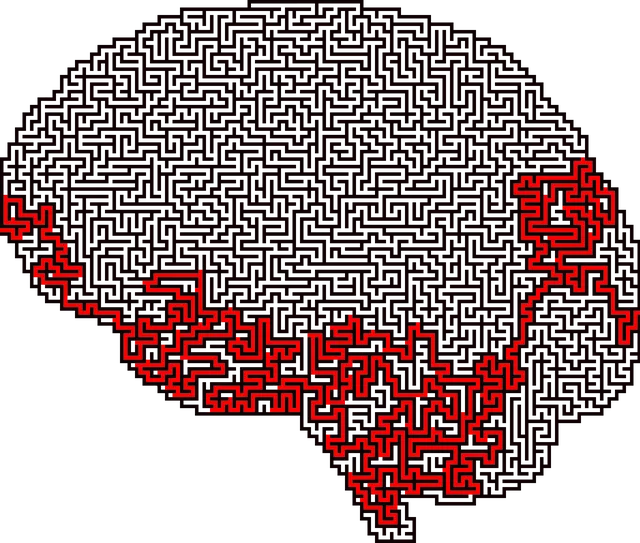Kaiser's Wheat Ridge facilities prioritize harm minimization through comprehensive risk assessment, actively preventing burnout and mitigating potential hazards. Therapists there are skilled in identifying risks like historical traumas and substance abuse, collaborating with clients to create personalized harm minimization plans. This proactive approach integrates patient needs and cultural sensitivity, fostering improved mental health and well-being. Kaiser's commitment to effective risk management ensures high-quality care, confident therapists, and a comprehensive safety net for all. Their good therapists in Wheat Ridge play a key role in this successful strategy.
“Risk assessment and harm minimization planning are crucial components of comprehensive mental health care, especially in dynamic settings like Kaiser’s Wheat Ridge facility. This article delves into these topics, starting with a foundational understanding of risk assessment, highlighting the critical role therapists play in identifying and mitigating risks. We present a case study of Kaiser’s approach to risk management in Wheat Ridge, followed by practical strategies for effective harm minimization planning. Discover how top-tier facilities like Kaiser ensure patient safety through robust therapeutic practices.”
- Understanding Risk Assessment: A Foundation for Harm Minimization
- The Role of Therapists in Identifying and Mitigating Risks
- Kaiser's Approach to Risk Management in Wheat Ridge: A Case Study
- Strategies for Effective Harm Minimization Planning
Understanding Risk Assessment: A Foundation for Harm Minimization

Risk assessment is a fundamental process that forms the backbone of any effective harm minimization strategy, especially in healthcare settings. It involves meticulously evaluating potential hazards and their likelihood to cause harm, allowing for proactive measures to mitigate risks before they escalate. By understanding Kaiser’s robust risk assessment framework, Wheat Ridge facilities can ensure the safety and well-being of both patients and staff. This comprehensive approach considers various factors, from environmental hazards to human behavior, emphasizing a holistic view of potential risks.
Incorporating Burnout Prevention Strategies for Healthcare Providers is crucial to maintaining a positive environment. By focusing on Mood Management and Depression Prevention, facilities can foster resilience and enhance overall well-being. Such initiatives contribute to a reduced risk of errors and improved patient outcomes, ensuring that Kaiser’s Wheat Ridge therapists deliver high-quality care with minimal potential harm.
The Role of Therapists in Identifying and Mitigating Risks

Therapists play a pivotal role in identifying and mitigating risks within their practice settings, including those at Kaiser in Wheat Ridge. Skilled therapists are equipped to assess individual client needs and tailor interventions accordingly. They facilitate open dialogues, encouraging clients to disclose potential hazards or vulnerabilities that may impact their well-being. Through active listening and comprehensive evaluations, therapists can identify risk factors such as historical traumas, substance abuse issues, or acute stress management challenges.
By recognizing these risks, Kaiser’s therapists in Wheat Ridge are able to collaborate with clients to develop harm minimization plans. This proactive approach involves implementing strategies to reduce the impact of identified hazards. Whether it’s referring clients to specialized Trauma Support Services for historical trauma processing or organizing Stress Management Workshops within the organization to foster resilience and coping skills, therapists contribute significantly to a client’s overall mental health and well-being.
Kaiser's Approach to Risk Management in Wheat Ridge: A Case Study

In Wheat Ridge, Kaiser’s Approach to Risk Management offers a compelling case study for mental health professionals worldwide. The healthcare provider has established robust systems to ensure the safety and well-being of both patients and staff, addressing potential risks proactively. This involves comprehensive risk assessment practices that consider individual patient needs, social determinants of health, and cultural sensitivity. By integrating these factors into their risk management planning, Kaiser boosts confidence among its therapists while fostering an inclusive environment.
The case study highlights successful strategies such as tailored therapy plans, ongoing staff training on cultural sensitivity in mental healthcare practice, and regular reviews to adapt to evolving patient needs. These initiatives not only mitigate potential harms but also enhance the quality of care. For those seeking reliable mental health services, Kaiser’s approach demonstrates their commitment to effective risk management, ensuring good therapists who are well-equipped to handle diverse client populations.
Strategies for Effective Harm Minimization Planning

Harm minimization planning is a proactive approach that involves identifying potential risks and implementing strategies to mitigate their impact. At Kaiser in Wheat Ridge, therapists play a pivotal role in this process by offering specialized support and guidance. One effective strategy is to promote Self-Care Practices among individuals at risk, empowering them with tools to manage stress and adversity. This can include encouraging regular exercise, mindfulness techniques, and healthy coping mechanisms.
Furthermore, Mental Health Awareness plays a crucial part in harm minimization. Public Awareness Campaigns Development can help destigmatize mental health issues, fostering an environment where people feel comfortable seeking help. By combining these initiatives with evidence-based therapies, Kaiser aims to create a comprehensive safety net, ensuring that individuals receive the necessary support and resources to navigate challenges effectively, ultimately leading to improved well-being and reduced harm.
Risk assessment and harm minimization planning are vital components of any therapeutic setting, ensuring client safety and well-being. As demonstrated by Kaiser’s successful approach in Wheat Ridge, a comprehensive strategy involves not just identifying risks but also empowering therapists to mitigate them effectively. By integrating these practices, mental health facilities can create a supportive environment where clients feel secure while navigating their therapy journeys. The case study highlights the importance of skilled therapists who understand risk assessment, enabling them to guide clients towards positive outcomes and foster a culture of safety in today’s digital era.






